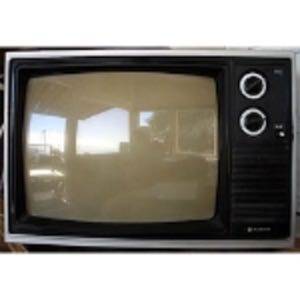Normally, this kind of thing doesn’t happen so early in the game. When legacy content companies try to sue a Web startup into oblivion, it’s usually a few years after it launches, after some perceptible – or at least alleged – damage has been done. The music industry took out Napster for enabling copyright infringement and is now setting its sights on Grooveshark.

In the case of Aereo, a startup that promises to bridge the gap between broadcast TV and the Web, the networks aren’t wasting any time. The company is still two weeks away from its targeted roll-out date, but is already being sued in federal court by NBC, ABC, CBS, Fox and Univision Communications.
So what’s the big deal? Using tiny, Internet-connected antennas, Aereo wants to make broadcast TV signals readily available across devices, whether they be laptops, tablets or smartphones. This content streaming combines with a cloud-based DVR feature to bring live TV to the Web in a way that, the company says, makes it far more convenient than the way things have traditionally worked. Imagine if you could watch live TV from your iPad or computer without having to deal with rabbit ears or cable hook-ups. That’s what Aereo is going for.
The service is supposed to go live in New York City on March 14, but not if the networks have anything to say about it. At issue is whether Aereo has the legal right to grab broadcast signals and retransmit them via the Web. The networks say no, they don’t. That’s a violation of copyright, they argue.
In response, Aereo published a statement saying that the company “does not believe that the broadcasters’ position has any merit,” although they stopped short of outlining any specific legal counterpoints, preferring instead to let those issues air out in court.
A Predictable Response
These objections from the content providers were easy to see coming from a mile away, as Aereo had previously conceded. Anytime new technology comes along that attempts to dramatically rethink the way content is distributed and consumed, those that have traditionally profited from the status quo tend to stand up and object. Longtime MPAA president Jack Valenti famously compared the VCR to the Boston Strangler and demanded that Congress put a stop to the “savagery… of this machine.”
At the same time, it’s not entirely clear how copyright law applies to a case like this. It’s not an uncommon side effect of living in an age of rapid technological innovation that often outruns the pace of the lawmaking process.
On the surface, what Aereo is trying to do sure sounds like a good idea, and it’s one that consumers would certainly find value in. It’s easy enough to say to the content providers, “Well, if you don’t like it, maybe you should have come up with something better.” And while innovation is sometimes slow among legacy media players, cable companies haven’t exactly been sitting this one out. Comcast is busy churning out new cross-device content offerings for its subscribers and is reportedly testing Web-based live TV functionality that would likely achieve something similar to what Aereo is aiming for.

For now, the fate of Aereo is in the hands of the courts. It may be awhile before a conclusive judgement is made, but in the meantime, the company may see its March 14 roll-out pushed back, at least temporarily.
















